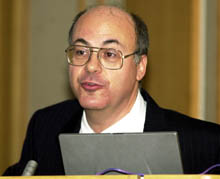 |
 |
First
Session of the Intergovernmental Technical Working Group
on Plant Genetic Resources for Food and Agriculture
Rome, 2-4 July 2001
| Photos and RealAudio from Wednesday, 4 July |
| Monday 2 July - Tuesday 3 July |
|
Peter Kenmore, Coordinator of the Global Integrated Pest Management (IPM) Facility, presented and discussed CGRFA/WG-PRG-1/01/7, Potential impacts of Genetic Use Restriction Technologies (GURTs) on Agricultural Biodiversity and Agricultural Production Systems |
|||
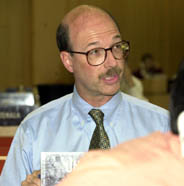 |
In his extensive commentary on the paper, the US stated, inter alia, that many assertions made in the report were in fact speculative and urged a more balanced description of GURTs that highlights their potential for hunger reduction. |
||
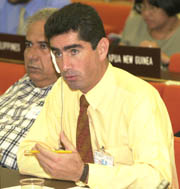 |
|||
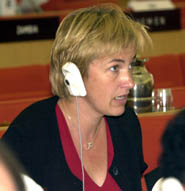 |
|
||
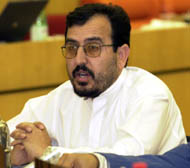 |
|||
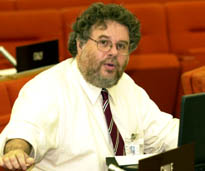 |
Speaking in a personal capacity, Canada likened IPRs to locks that could be used to protect the valuable contents of a warehouse; said that innovation, blocked by opposition to IPR, had now emerged in the form of GURTs; and noted that innovators are more likely to put valuable things in the warehouse if they know there is a lock on the door protecting from piracy. |
||
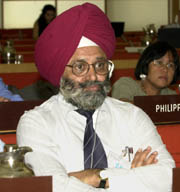 |
|||
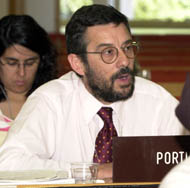 |
|||
|
|||
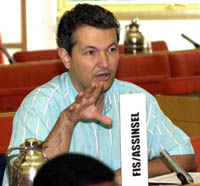 |
|||
| Adoption of the report of the meeting closing statements | |||
| Asmund Asdal (Norway), Rapporteur, presented the report of the meeting. Delegates adopted it after making clarifications and suggestions for improvement. | 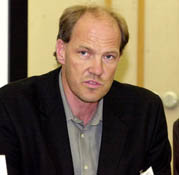 |
||
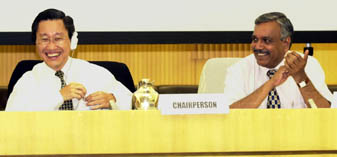 |
Dr. N. Murthi Anishetty, FAO Seed and Plant Genetic Resources Service (on the right) looks on as Chair Eng Siam Lim gavels the meeting to a close.
|
||
| Archive: Photos and RealAudio of Monday, 2 July and Tuesday, 3 July | |||

